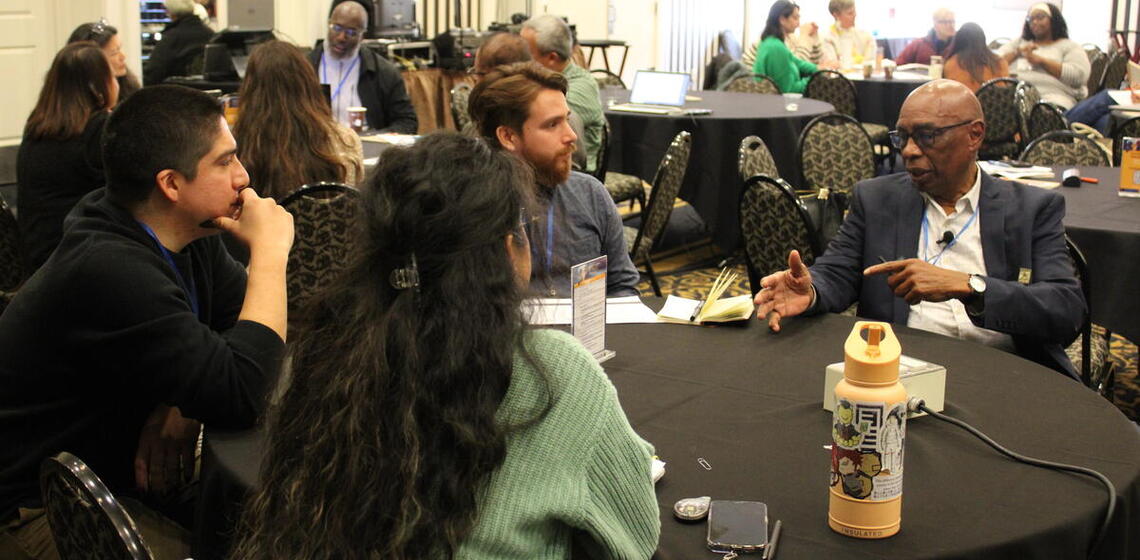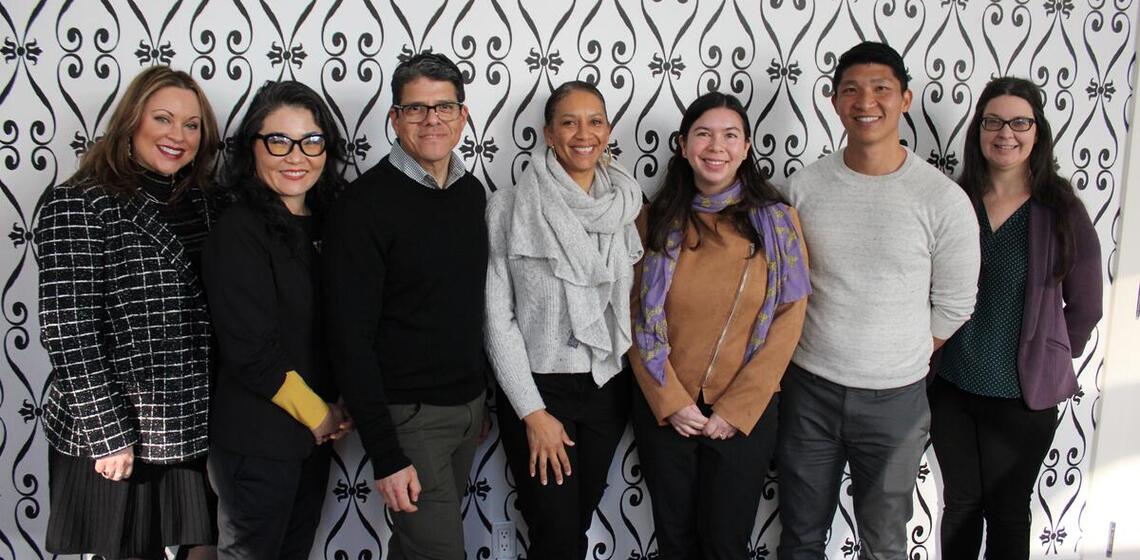Advancing equity in the digital age: A recap of the BARA Winter Summit
On January 24–25, 2025, the 21st Century California School Leadership Academy (21CSLA) Bay Area Regional Academy (BARA) hosted its Leading for Equity Winter Summit: Understanding the Impact of the Digital Age on Our Most Vulnerable Students at the Hotel Shattuck Plaza in Berkeley, California. The summit brought together local educators, researchers, and thought leaders to explore the intersection of technology, equity, and education. The event served as both a call to action and a space for collective learning, equipping education leaders with the knowledge needed to navigate the evolving digital landscape through an equity-centered lens.
Honoring land and community
The summit opened with a powerful land acknowledgment, honoring Indigenous firefighters and communities. Given the recent wildfires devastating communities across Southern California, the acknowledgment underscored the importance of stewardship, resilience, and justice—grounding the conversations that followed.
Keynote: Examining AI and equity
Dr. Tiera Tanksley, Faculty Fellow in Critical Race Technology Studies at UCLA, delivered a compelling keynote, “Bugs, Bots & Algorithmic Bias: Examining the Promise & Peril of AI in Education.” Drawing from her Critical Race Technology Theory (CRTT) research, she examined how AI often perpetuates systemic inequities, particularly anti-Blackness, in education.
Dr. Tanksley dispelled myths about technology neutrality, cautioning that “Big Tech’s” approach to education frequently deepens disparities rather than bridging them. She highlighted troubling examples, such as biased algorithms affecting student grades and anti-cheating software disproportionately flagging Black students.
She also celebrated the resilience and ingenuity of Black communities, emphasizing how historically marginalized groups have "hacked" unjust systems for joy, hope, and healing.
Her presentation inspired a critical challenge to all educators:
“What happens if we take the idea of hacking, and we bring it to leading for equity? Leaders for equity hack the system. How do we find those bugs in our systems? What needs to be debugged?”
Deeper exploration of key issues
Over the course of two days, interactive breakout sessions expanded on Dr. Tanksley’s challenge to “debug” inequities in our systems, offering a deeper exploration of key issues at the intersection of technology and equity.
These sessions examined how culturally responsive teaching practices can empower students, explored hands-on approaches to making STEM learning more accessible, and highlighted the role of digital trust and data privacy in education. Participants also engaged in discussions about the ethical use of AI in schools, strategies for protecting student data, and ways to foster student agency through technology.
Together, these sessions painted a complex but hopeful picture: technology is neither inherently harmful nor helpful—it is the ways we design, implement, and lead with equity that determine its impact.
Acknowledging presenters
The summit featured experts who shared critical insights across 9 breakout sessions including, Dr. Jabari Mahiri, Dr. Allison Scott, Shana Vidal White, Katherine Goyette, Dr. Mai Xi Lee, Laurie Wong Roberts, Keldon Clegg, Dr. Kip Glazer, Hillary Walker, Chris Mah, Molly Montgomery, Dr. Allison Munzer, Ilke Bayazitli, and Dr. Jennifer Elemen. Learn more about our presenters.
Student voices: Navigating technology in education
One of the summit's most thought-provoking moments was the student panel, where six high school students from across the Bay Area shared their experiences with technology in and around school.
Their insights underscored several key takeaways. Students have grown up with technology and are keenly aware that each tool brings exciting opportunities and significant downsides. They noted a desire for structured opportunities to explore new tools like AI, grapple with ethical considerations, and develop digital responsibility. Importantly, they all agreed that technology has its limitations, and that technology can never replace teachers with passion for their subjects who take the time to build trusting relationships with their students.
Reflection and call to action
The summit concluded with team and individual reflection sessions, where participants explored how they could apply their learnings to their schools and communities. Some of the most critical actions included:
- The urgency of developing culturally responsive technology practices
- The need to embed digital trust and data ethics in school policies
- The importance of student-centered AI integration that promotes critical engagement rather than passive consumption
Participants shared:
“This is my first time attending a BARA offering, and I am blown away. Everything—from the organization, to the speakers, to the students, to the discussions with people I just met—has been wonderful. I will definitely join future offerings.”
“I loved the breakout sessions. The keynote speaker was phenomenal.”
“Student panel was fire!!!!! Loved hearing their perspective. Bring them to our sessions. Have them lead us.”
Looking ahead
The BARA Winter Summit reaffirmed that advancing equity in the digital age requires ongoing critical awareness, collaboration, and action. The BARA Team looks forward to its next summit June 12–13, 2025, and encourages educators to continue these conversations and explore BARA’s no-cost leading for equity offerings and resources.
To stay engaged and learn more, visit BARA's Current Offerings.








